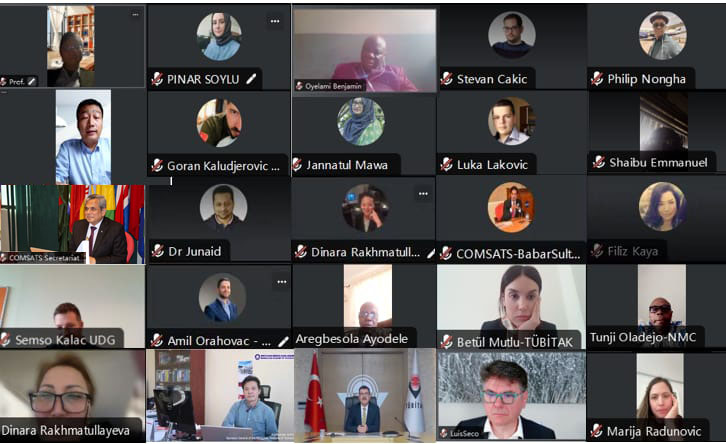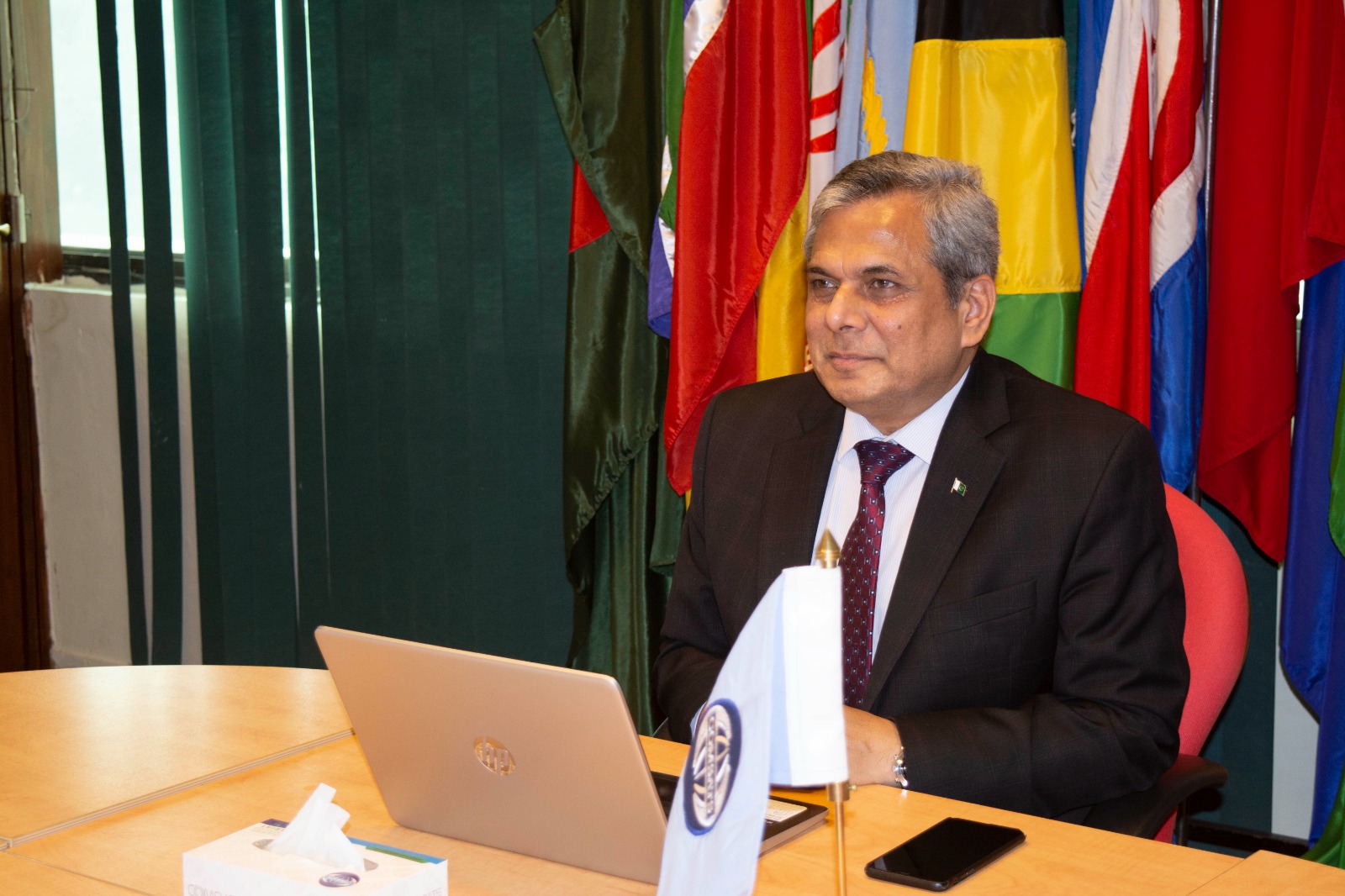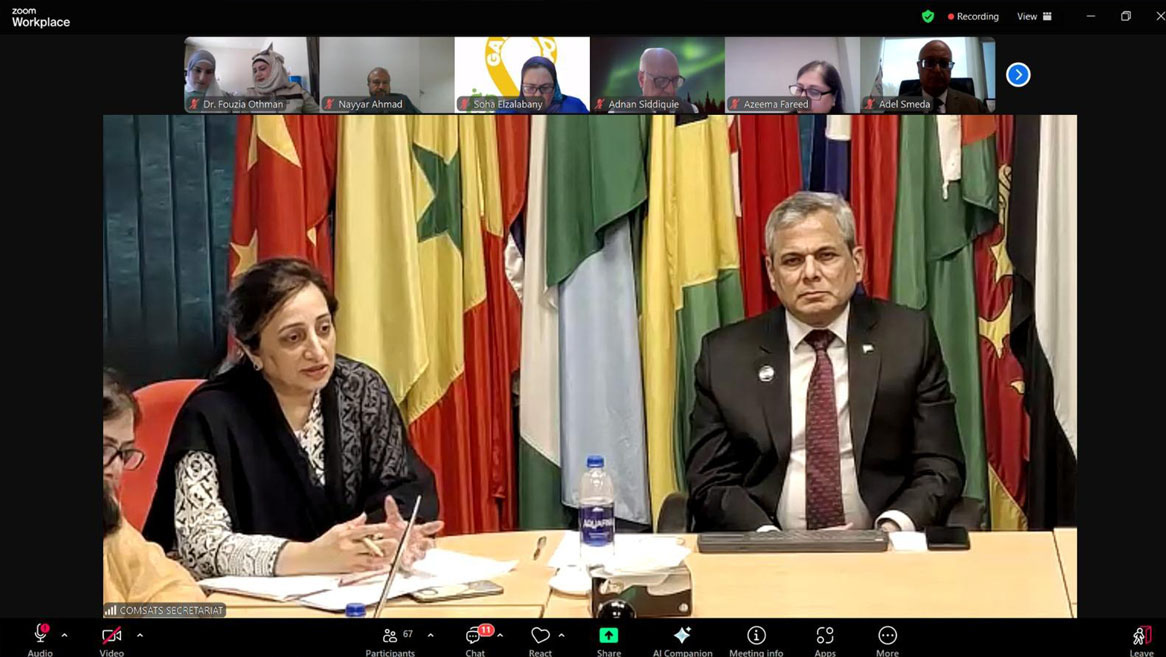COMSATS participated in the eighth term of ANSO-BIDI School on ‘Innovation, Sustainable Development and Leadership Enhancement – 2024
From the platform of the Belt & Road International Innovation Development Institute Network (ANSO-BIDI Institute Network), COMSATS, the Centre for Environmental Economics of the University of Chinese Academy of Sciences (CEE-UCAS), the Alliance of National and International Science Organizations for the Belt and Road Regions (ANSO), and other members of ANSO-BIDI Network, have collaborated to organize the eighth term of ANSO-BIDI School (online training), titled ‘Innovation, Sustainable Development and Leadership Enhancement’. So far, CEE-UCAS, in collaboration with COMSATS and other members of ANSO-BIDI Institute Network have organized seven terms of ANSO-BIDI School (online trainings), benefitting over 800 leaders/scientists from various developing countries, including over 400 trainees nominated by COMSATS belonging to its various Member Countries.

The training program aims to enable participants to drive positive change and growth in their respective organizations and communities. The eight edition of the training has 10 modules spanning over 3 months, during which distinguished subject experts from renowned universities and prestigious international organizations will deliver lectures on several topics, including Supply chain and sustainable development; ESG and Green Finance; Computer Science and Engineering; Innovation, Environment and Sustainability; and IEEE ARTC symposium.
The opening ceremony of the event was held virtually on 24th April 2024, which was attended by over 100 participants from a number of countries. Among others, 68 trainees registered for the 8th edition belonging to various Centres of Excellence and Member Countries of COMSATS, including Iran, Kazakhstan, Nigeria, Pakistan, and Tanzania, participated in the opening ceremony.
The inauguration ceremony of the aforementioned training was opened by Prof. Desheng Wu, Director of the Research Centre for Environmental Economics of UCAS, China. Moreover, various leaders from collaborating organizations, including Dr. Guo Lugang, Vice President of Beijing Association for Science and Technology (BAST), China; Ambassador Dr. Mohammad Nafees Zakaria, Executive Director COMSATS, Prof. Avid Budeebazar, General Secretary of the Mongolian Academy of Sciences, Mongolia, Prof. Dr. Hasan Mandal, President, The Scientific and Technological Research Council of Turkiye (TUBITAK), Turkiye; and Prof. Luis Seco, Professor, University of Toronto, Canada, addressed the audience at the opening ceremony.

During his address, Amb. Zakaria, emphasized that the path to sustainable development is laden with challenges, especially for developing nations contending with scarce resources and infrastructure. He underscored the significance of tech-based solutions, education, and innovation for fostering sustainable development in the Global South. He also highlighted leadership enhancement as priorities for navigating nations adeptly through the complexities of our interconnected world and effectively channeling resources.
Amb. Zakaria noted that COMSATS has been facilitating S&T exchange, knowledge networking, capacity-building, and collaborative research and development among its 27 Member States. Amb. Zakaria reflected upon the ongoing mutually advantageous cooperation between COMSATS, ANSO, and UCAS, and reaffirmed COMSATS’ unwavering dedication to sustained active collaboration with the ANSO-BIDI Institute Network in promoting scientific excellence, building capacity, and nurturing leadership development among individuals in developing countries. Amb. Zakaria conveyed his sincere appreciation to the organizing committee of the training, trainees, and subject experts (Speakers) for their invaluable contributions to this highly significant event, and also expressed gratitude to the leaders of the partner organizations for their collaboration.
The opening ceremony was followed by first module of training course, titled ‘ESG and Green Finance’ which was conducted by Prof. Luis Seco, Professor, University of Toronto, Canada.





